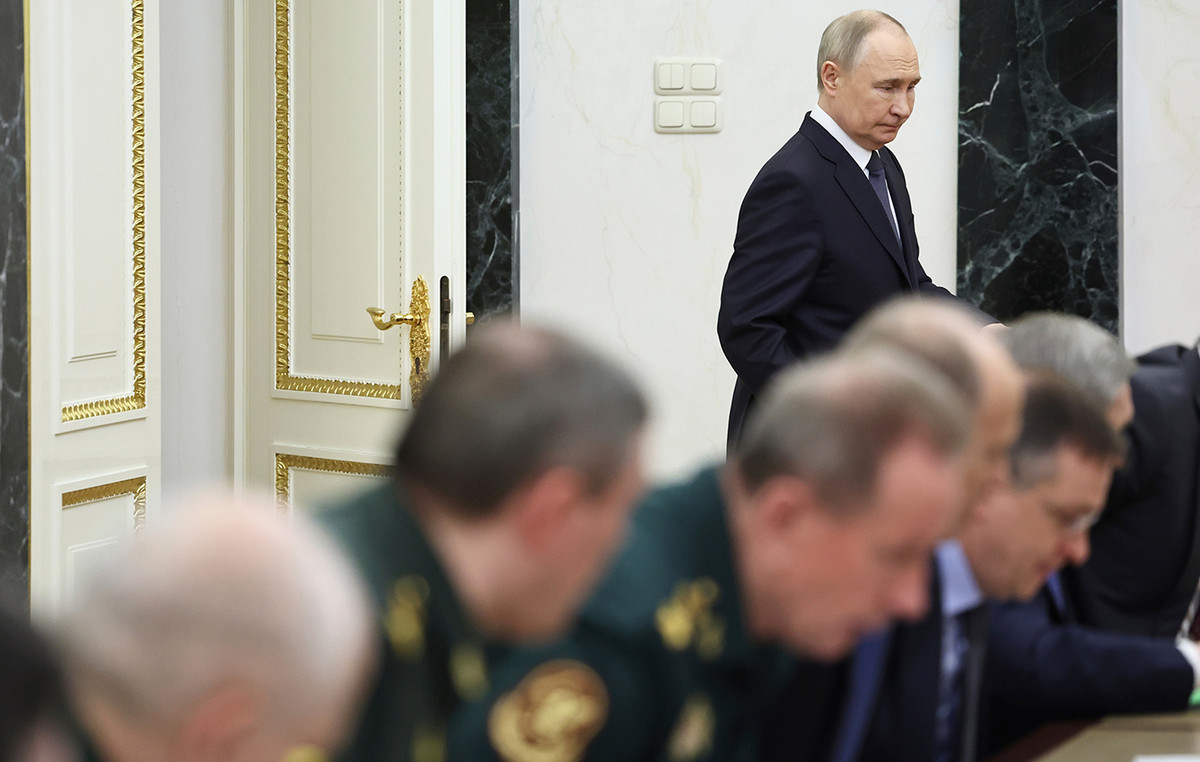In the weeks since Russia invaded Ukraine, Moscow has continued to send natural gas westward and Europe has used the energy to power industry and heat homes. That could be about to change.
President Vladimir Putin has demanded that “hostile” countries start paying for natural gas with rubles instead of US dollars or euros, as agreed in their supply contracts. Germany, Russia’s biggest energy customer in Europe, dismissed Putin’s directive as “blackmail”.
“A ruble payment is not acceptable,” German Economy Minister Robert Habeck said on Monday, adding that “we will not be divided and the response of the G7 states is unequivocal: contracts will be fulfilled”.
The payment dispute threatens gas supplies that continued to flow even as Russian troops bombed Ukraine’s major cities and the West imposed crippling sanctions on Russia’s economy.
The European Union is now struggling to replace Russian gas with other sources, but by its own admission it cannot break its energy dependence before 2027.
Putin has given Russia’s central bank and Gazprom, the state-owned gas company, until Thursday to submit proposals to accept payments in rubles. Ivan Abramov, a senior Russian lawmaker, said on Monday that Moscow will halt gas shipments unless it receives payment in rubles, according to Reuters.
Major energy companies are likely to regard any requirement to change payment terms as a breach of contract. They will be supported by Western governments that want to increase economic pressure on Putin.
“It is unclear how Western countries will be able to access enough rubles to finance gas imports, or even if they would be willing to pay in rubles,” said Liam Peach, Emerging Europe Economist at Capital Economics.
“The measures taken by Russia could also be interpreted as provocative and could increase the possibility of Western nations tightening sanctions on Russian energy,” he added.
Putin’s plan
Why does Putin want energy companies to pay for Russian gas in rubles? The answer may be linked to the currency itself, which has fallen to record lows against the US dollar after sanctions cut Moscow off of overseas reserves worth hundreds of billions of dollars.
Since then, Russian authorities have sought to support the currency by preventing investors and companies from selling the ruble. At the same time, they are trying to increase demand for the currency.
Requiring gas payments in rubles appears “to be an effort by Russian authorities to pressure Western countries, forcing foreign buyers of Russian gas to use rubles, with the added benefit of supporting the value of the currency,” Peach said.
The European Union is planning to reduce consumption of Russian natural gas this year as it prepares for a complete break with its biggest energy supplier. But Europe would struggle to survive for long without Russian gas, and finding alternative sources poses a huge logistical challenge. A recession would be virtually guaranteed if Putin cut supplies.
Still, the West hates to do anything to advance Putin’s war effort. With the sanctioned Russian central bank banned from exchanging euros and dollars for rubles, Moscow is trying to find a new stream of money it can easily spend.
Putin could “directly finance the war, the army, the supply of soldiers, the supply of gasoline for the tanks and the construction of weapons in his own country” with rubles, Habeck said on Monday.
“What he cannot do is exchange foreign currency with other countries,” he added.
risky move
Requiring gas payments in rubles could help boost the currency. But that doesn’t mean it will be good for Russia in the long run. The move could hasten the demise of its massive energy sector.
“Gas supply agreements are generally considered sacrosanct, and in an extreme scenario, insisting on payments in rubles can give buyers reason to reopen other aspects of their contracts — such as duration — and simply completely accelerate their exit from Russian gas.” , said Vinicius Romano, senior energy analyst at Rystad.
Another problem: Russian gas sales to Europe top $40 billion a year, and being paid in rubles means the country will be left without a major source of foreign currency at a time when its exports are plummeting.
This means that Russia may not have enough foreign money to pay for imports, forcing the country to turn inward and further isolate itself from the global economy.
“The long-term implication is that this accelerates Russia’s de-dollarization strategy and reinforces the idea that Russia will continue to drift toward autarky,” Peach said.
— Nathan Hodge and Inke Kappeler contributed reporting
Source: CNN Brasil
I am Sophia william, author of World Stock Market. I have a degree in journalism from the University of Missouri and I have worked as a reporter for several news websites. I have a passion for writing and informing people about the latest news and events happening in the world. I strive to be accurate and unbiased in my reporting, and I hope to provide readers with valuable information that they can use to make informed decisions.







